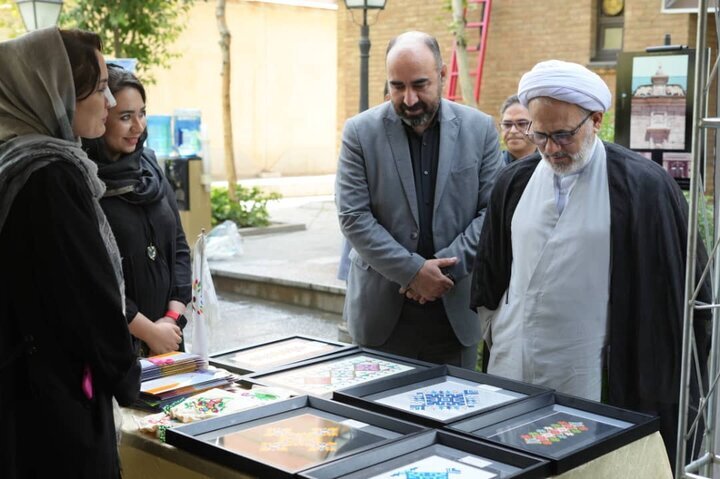Tehran festival delves into Arbaeen heritage among nations

TEHRAN – The first international event dedicated to Arbaeen heritage took place in Tehran, bringing together scholars, researchers, and experts to explore the cultural and historical significance of the religious occasion which marks the culmination of 40 days of mourning for Imam Hussain (AS), the third Shia Imam.
The event, organized by the Research Institute of Cultural Heritage and Tourism under the Ministry of Cultural Heritage, Tourism, and Handicrafts, featured two main components: specialized panels and an exhibition, Mehr reported on Tuesday.
The discussions and displays focused on the heritage of Arbaeen in the past, present, and future, with an emphasis on how this monumental event can serve as a cultural bridge across West Asia.
RICHT Director Mustafa Dehpahlavan spoke at the ceremony, highlighting the immense potential of Arbaeen as a unifying event for a region filled with challenges. He proposed that with proper frameworks, Arbaeen could serve as a connecting link between various countries in the Middle East (West Asia).
Dehpahlavan also pointed out the diverse cultural and ethnic expressions of Muharram and Ashura across Iran, noting that these traditions could further strengthen ties between Iran and Iraq, especially through cultural and religious tourism during the Arbaeen pilgrimage.
Mahdieh Bod, the Scientific Secretary of the event, emphasized the deep historical and cultural roots of Arbaeen, which have resonated with believers and devotees of Imam Hussain for centuries. She described Arbaeen as an extraordinary phenomenon that draws millions of pilgrims each year, with the annual pilgrimage to Karbala being a testament to its enduring impact.
The commemoration at Tehran's 19th-century Masoudieh Palace included academic discussions, cultural exhibitions, and artistic performances, all aimed at enhancing global understanding of Arbaeen's legacy. Scholars and religious figures at the event elaborated on the profound influence of Arbaeen, which commemorates the martyrdom of Imam Hussain and his companions in the Battle of Karbala in 680 CE.
Every year, millions of Shia Muslims embark on the Arbaeen trek to Karbala, which is seen not just as a religious observance but as a personal and introspective journey. The event's focus was on how this pilgrimage, marked by a remarkable display of unity among people from diverse backgrounds, can serve as a powerful symbol of cultural and historical heritage.
AM
